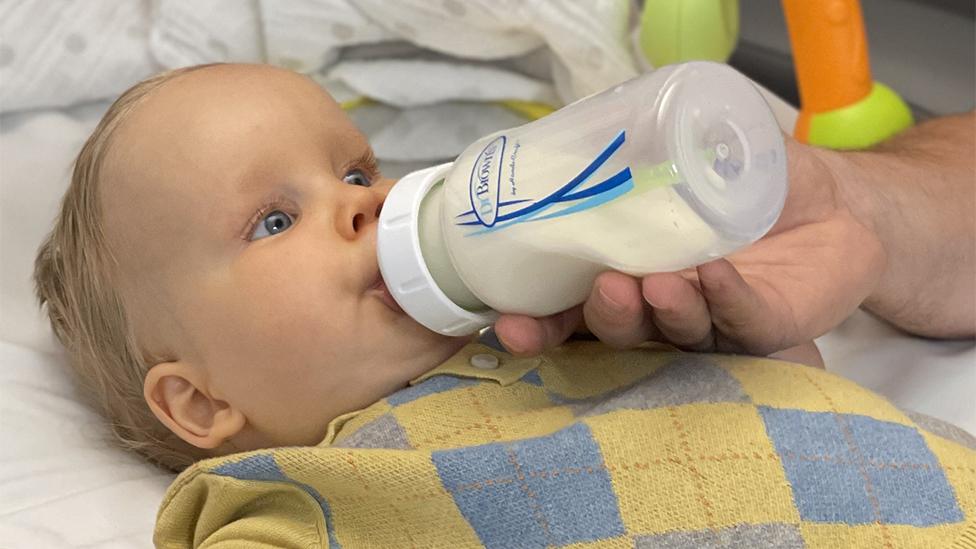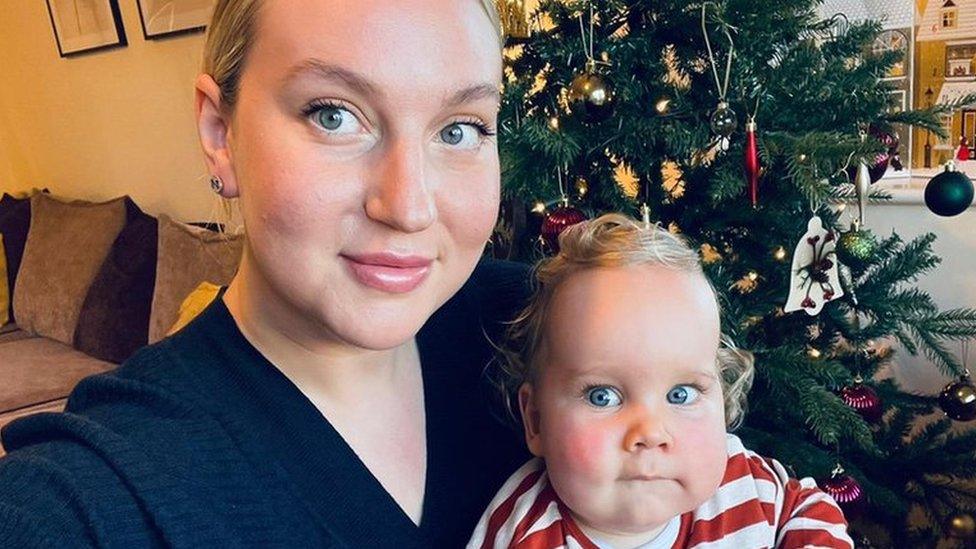Thames Valley pilot study to check for rare condition
- Published

Edward is one of 65 babies born with SMA every year in England
A pilot study that aims to improve the health of newborn babies affected by a rare muscle-wasting condition is being launched.
Pregnant women in the Thames Valley can take part in the screening trial to detect spinal muscular atrophy (SMA).
The genetic condition is not routinely detected before or at birth in the UK, unlike in the US, much of Europe and Australia.
Professor Laurent Servais, who designed the study, said this "must change".
SMA makes muscles weaker and causes problems with movement, and it is estimated a baby is born with the condition in the UK every five days.
By the time they start showing symptoms and receives a diagnosis, most have already lost a significant proportion of their nerve function.
The pilot study will be run at the MDUK Oxford Neuromuscular Centre, external.
Professor Servais said: "Screening for SMA at birth will significantly increase a newborn's chance of survival and development.
"Today, in the UK, we are not screening our children for SMA even though we know how it works and we know how to use it.
"This must change and we are proud to be driving this change."

Typical symptoms of SMA include:
Floppy or weak arms and legs
Movement problems - such as difficulty sitting up, crawling or walking
Twitching or shaking muscles (tremors)
Bone and joint problems - such as an unusually curved spine (scoliosis)
Swallowing problems
Breathing difficulties
Source: nhs.uk

The researchers hope the trial will pave the way for a national screening programme in the UK.
Mothers-to-be under the care of Oxford University Hospitals NHS Trust, Royal Berkshire NHS Foundation Trust, Milton Keynes University Hospital NHS Foundation Trust, and Buckinghamshire Healthcare NHS Trust will be recruited.
Last year an 11-month-old baby from Essex with a severe form of SMA received what was believed to be the world's most expensive drug after a campaign by his parents.
Megan Willis fought for her son Edward to be given the drug after he was diagnosed with the condition when he was just two months old.

Follow BBC South on Facebook, external, Twitter, external, or Instagram, external. Send your story ideas to south.newsonline@bbc.co.uk, external.
Related topics
- Published31 December 2021
